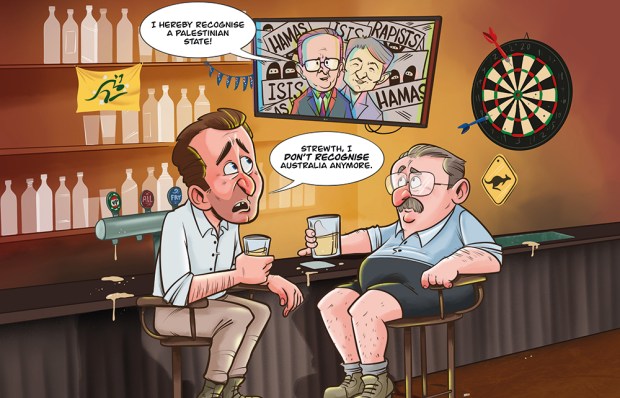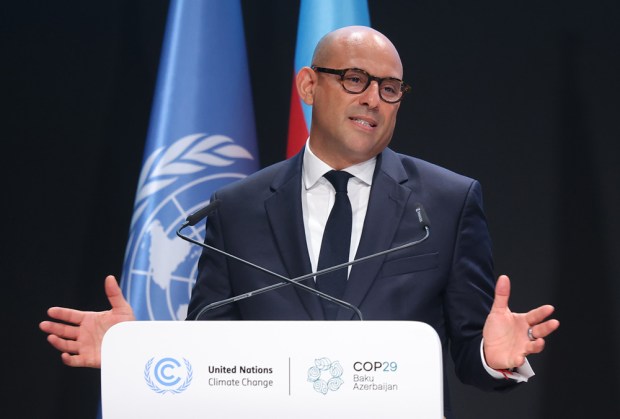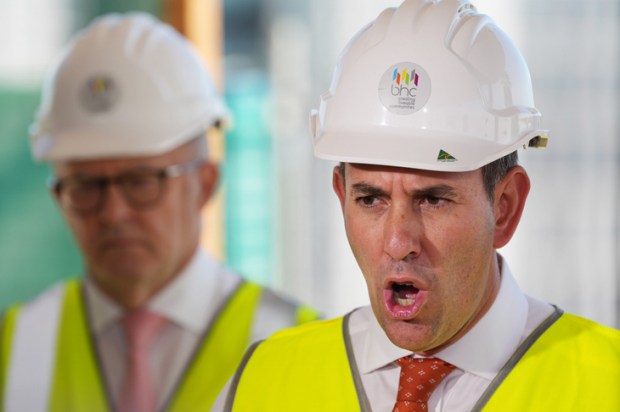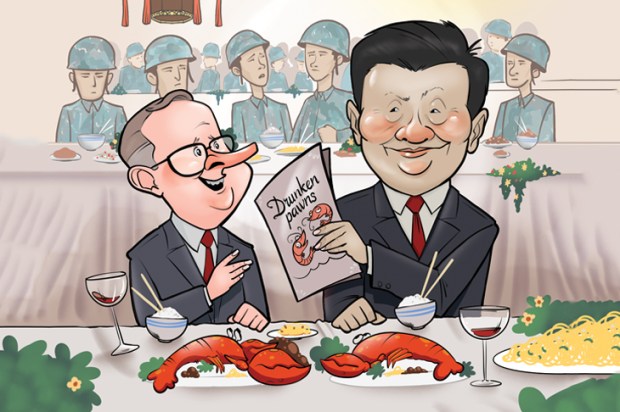In Labor’s telling, the decision by Japanese Toyota executives to pull the plug on their Australian operation is Tony Abbott’s fault. After all, his government is phasing out ‘industry assistance’ to the automobile sector. In other words, it has had the guts to stop squandering around $30 billion of tax dollars over 16 years on propping up the unproppable: our car-manufacturing industry.
Call it ‘creative destruction’, to borrow Joseph Schumpeter’s famous phrase. It is the economic nostrum that old, unprofitable industries must collapse in order for new, thriving enterprises to grow. It is also the bedrock of the post-1983 economic reforms that not only gave Australia its current high standard of living, but protected us from the Asian recession in 1997-98 and the global financial crisis of 2008-09.
To be sure, some Australians in old industries — such as textiles, clothing, footwear — have subsequently undergone some painful adjustment: Pauline Hanson’s One Nation movement was, in many ways, a backlash against the economic upheaval and social dislocation involved in the process of creative destruction. But, as Schumpeter recognised in a different context, the same forces that bred this insecurity — the spread of global capitalism — can’t be stopped. To their great credit, Bob Hawke, Paul Keating, John Howard and Peter Costello knew that a nation that pretends that the changes accommodating these irresistible forces can be ignored will become poorer.
For a bloke who is often dismissed as an acolyte of the protectionist B.A. Santamaria, Mr Abbott appears to disagree with the notion that governments should provide, and must heavily subsidise, loss-making industries in order to protect jobs. Bill Shorten, on the other hand, distances himself and his party from the Hawke-Keating legacy, bleating on instead about Mr Abbott’s failure to ‘fight for’ Australian jobs.
Offering no positive solution to job creation other than frittering away more tax dollars to prop up unsustainable and productivity-sapping enterprise bargaining agreements, and resisting any concessional bargaining, Mr Shorten’s Labor party has become a victim of its own short-sighted lazy thinking, enslaved to union greed.
Perhaps there is a better definition of ‘creative destruction’: the ability of Australian unions to dream up creative new ways to thwart businesses and thereby destroy jobs.
Saint Schapelle
The one thing that can be said about Channel 9’s tele-movie Schapelle was that both the acting and the timing were brilliant. Unlike the real Schapelle Corby, the show’s producers landed their product in the right place at exactly the right time, and unlike the hapless woman she was portraying, Krew Boylan’s character and performance were nuanced, subtle, credible and — dare we say it? — almost likable.
Unlike the real-life Schapelle Corby, whose woeful act continues to pull the crowds. Let us not forget this is a convicted drug dealer seeking to capitalise on her crime and someone who has falsely elicited public sympathy for nearly a decade thanks to her ‘celeb’ status, telegenic looks and her brazen mendacity.
For evidence, consult Sins of the Father: The Untold Story Behind Schapelle Corby’s Ill-Fated Drug Run (Allen & Unwin, 2011), written by the award-winning Sun-Herald reporter Eamonn Duff. It’s the definitive book about her father, upon which much of the tele-movie was based. It also most riles the Schapellite brigade. Based on interviews with those who knew him (Michael Corby died in 2008), the book raises more than a stuffed boogie-board bag’s worth of questions about the Corby clan’s alleged involvement in the drugs trade, specifically trafficking ‘hydro’ up and down the east coast and to Bali.
Such as why did Mick Corby himself fly to Bali only three weeks before Schapelle? Why did Schapelle fly via Sydney? Was it to evade Australian customs? Why did two drug dealers fly to Bali to visit Schapelle in prison two weeks after her arrest, and then pretend they were ‘strangers’? Why was Schapelle so agitated on the flight into Bali? And isn’t it just a tad odd that, a few weeks before Schapelle’s arrest in October 2004, her dad’s best mate and neighbour Tony Lewis got busted with a farm full of marijuana? And so on.
One of the interviewees is drug dealer Malcolm McCauley, who claims: ‘The truth is, Schapelle always knew her dad was a drug dealer. She knew about the trips to Bali, she knew about the system, the bribes, she knew the lot.’
As for the innocent, martyred Saint Schapelle? Pure fiction.
Got something to add? Join the discussion and comment below.
You might disagree with half of it, but you’ll enjoy reading all of it. Try your first month for free, then just $2 a week for the remainder of your first year.












